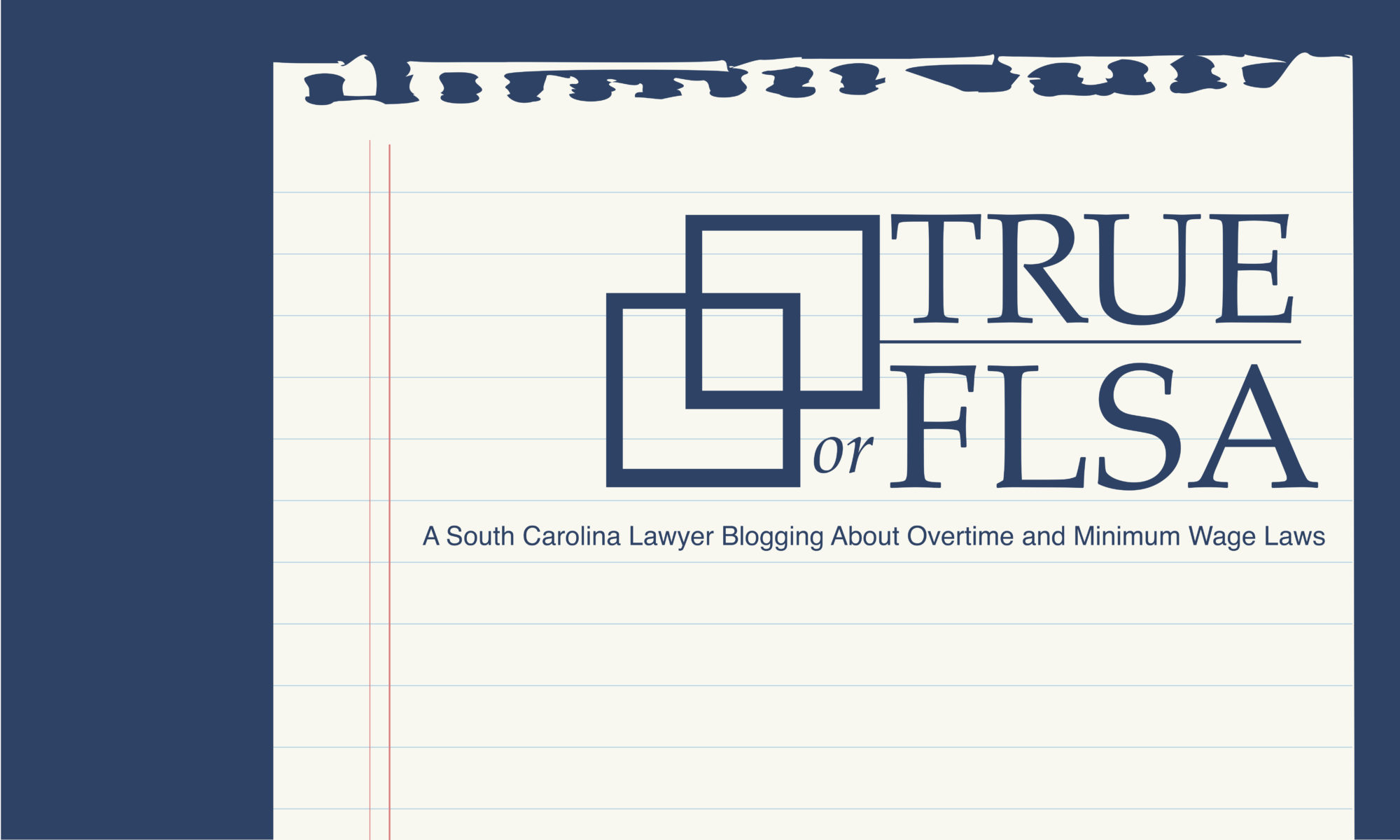South Carolina employees often fail to report overtime violations because employees fear retaliation if they speak up. Even though the FLSA prohibits retaliation, practically speaking all that means is that an employee has grounds for a lawsuit after termination. Most employees would just rather have their job, which I certainly understand. But I think it’s helpful for South Carolina employees to know exactly what type of reporting or complaining about overtime violations will fall under the anti-retaliation provisions of the FLSA.
What Complaints are Protected from Retaliation?
Not all “complaints” are the same. Complaining to your co-worker about not getting paid overtime won’t provide cover from retaliation. However, internal complaints to members of management, such as complaints to HR or a supervisor, DO qualify for protection. Now, up until 2012, South Carolina employees could not count on protection from making solely internal complaints. Instead, they would have to file a formal complaint with the U.S. Department of Labor first. But in 2012, the federal court of appeals (for the area that includes South Carolina) decided that employees making only internal complaints ARE protected from retaliation.
So now, South Carolina employees can make internal complaints about overtime or minimum wage violations. And, if their employer retaliates, the employees would then have a legal claim for retaliatory discharge under the FLSA. The U.S. Supreme Court has also decided that oral complaints qualify for protection as well, although I always recommend putting complaints in writing as strong proof of the complaint later on. Employers often deny that the employee made any complaint at all, so having an email or letter in hand as evidence is a powerful refutation.
What Types of Retaliation do South Carolina Employees Often Face?
The most obvious type of retaliation is termination. The employee complained, and the employer immediately fired the employee.
I also often see the employer repeatedly writing up the employee who made the complaint. This type of retaliation is easier to prove when the employee has not been written up before (or, at least, not as often).
Employers may fail to promote an employee after the complaint, or put something in the employee’s file that prevents future promotion or advancement.
Increased scrutiny and nitpicking managers are often pretty common, too. The employer or its managers start to find fault with the employee who complaint, often leading to increased write-ups and sometimes termination.
What can South Carolina Employees do if They Face Retaliation?
If the retaliation is less than termination, such as increased write-ups or failure to promote, you can document the retaliation in an email to HR asking them to investigate. Or, if that doesn’t work, you can contact the U.S. Department of Labor (DOL) to file a formal complaint. Understand, however, that the DOL isn’t likely to file a lawsuit on your behalf, although the DOL can investigate and try to resolve the matter for you.
If you’ve been fired, then a close proximity in time between your complaint about overtime violations and the time of your termination is a strong implication that the firing was retaliatory. You would then have grounds to file a lawsuit in state or federal court, and if successful, you would be entitled to re-employment, lost wages (sometimes doubled by the court in certain circumstances), and your attorney’s fees.
If you believe you’ve been retaliated against, you can contact a South Carolina overtime lawyer for a consultation to review the facts of your case and determine whether a lawsuit would be appropriate.



